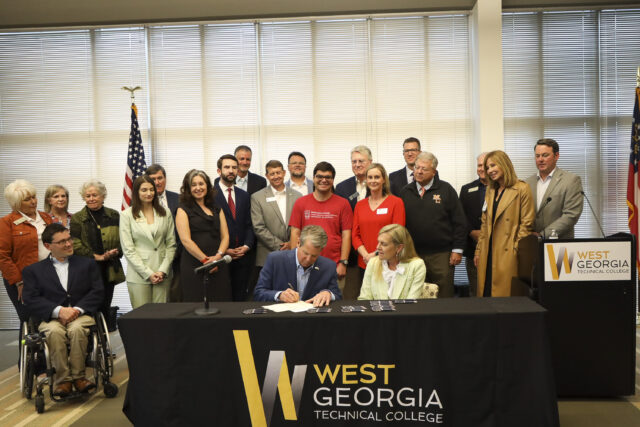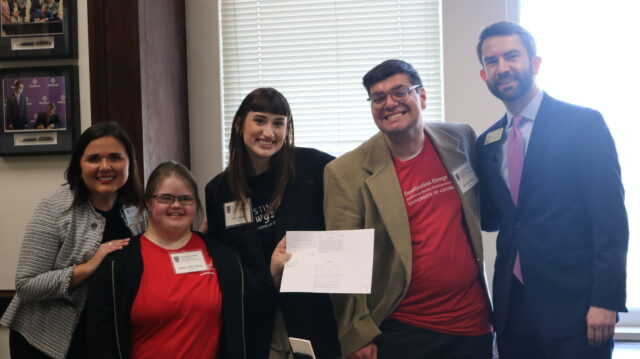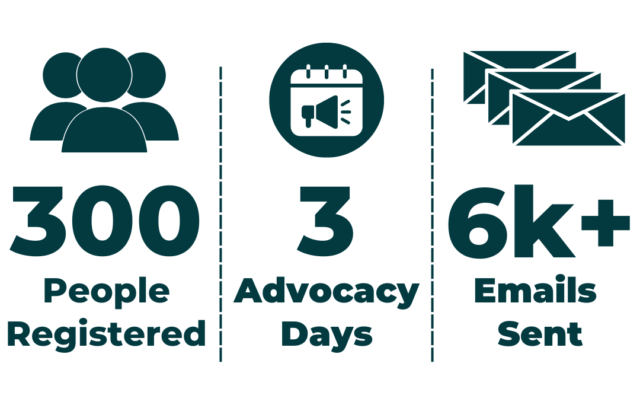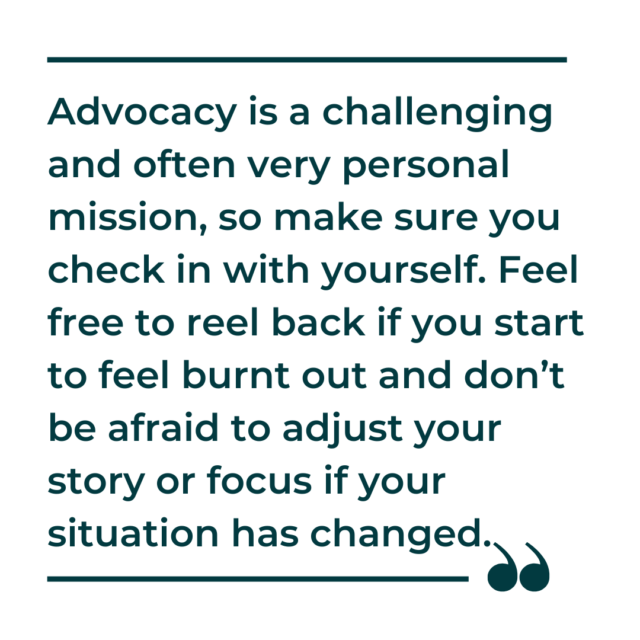
Now that the 2023 legislative session has ended, it’s the perfect time to reflect on the legislative process and the impact that so many advocates have had on making real policy changes. And hopefully the success stories from this year will inspire and revitalize us to continue doing good work in the “off season.”
From an Idea to a Bill
Do you remember the Schoolhouse Rock! song, “I’m Just a Bill”? Well, it’s not nearly that simple. They leave out a lot of the details.
After coming up with an idea for a bill, the first step is finding a “champion” who will pitch the bill to the legislative council. This should be someone who cares about and understands the affected communities. In the case of HB185, our champion was House Representative Houston Gaines who stood beside the bill every step of the way.
The bill is then sent to a relevant committee where the chairperson and legislators will analyze and vote on the bill. At this stage the key is to engage with the members of this committee and make sure they understand the importance of the bill.
Then the bill goes to the rules committee and the same process repeats. The legislators need to be educated about the bill so they will push it along to the next stage.
Finally, the bill is passed on to the top dog, in our case the speaker of the house, and the chamber votes on whether it will get passed through the House. This is another point where the champion plays a large role because they can engage with the speaker.
Once the bill is passed on the House side, congratulations! You’ve just made it to halftime! Now all of these steps must be completed again on the Senate side.
Successful Advocacy Requires Committed Advocates
You may notice that the common denominator is always a need for communication with legislators. This is why advocates are so important: there are so many conversations to be had so you need a lot of passionate people to have them.

One of the key advocates for HB185 was Ben Harrison, a student at the University of Georgia’s Destination Dawgs program. He participated in the Georgia Council on Developmental Disability’s (GCDD) Advocacy Days at the Georgia State Capitol where he connected with Rep. Gaines, a fellow UGA alumna, to talk about the IPSE bill..
“I think just being able to talk with Houston Gaines at his office at the Capitol in Atlanta, that was a huge deal,” said Harrison. “And I think that being part of UGA, like he is, led us into forming a great connection.”
 Over 300 people registered for the three Advocacy Days this past Spring and more than 6,000 emails were sent to legislators about IPSE programs and other issues in the disability community. This interaction between the community and their representatives was crucial to the passing of HB185, as it gave legislators real-world examples of how the legislation could help people.
Over 300 people registered for the three Advocacy Days this past Spring and more than 6,000 emails were sent to legislators about IPSE programs and other issues in the disability community. This interaction between the community and their representatives was crucial to the passing of HB185, as it gave legislators real-world examples of how the legislation could help people.
“I feel like he was honored to meet someone from his district and the feeling was mutual,” said Harrison on meeting his local senator, Mike Hodges. “I know personally I’m a visual learner, so if I see the person whose life I’ve impacted it’s a lot better than just hearing the words.”
For HB185, the impact of advocates cannot be overstated. This bill was actually passed at 12:15AM on the day after the legislative session ended because of last-minute changes. But an exception was made to extend the time for HB185 because the Speaker of the House and representatives saw the importance of passing it. The bill passed 165 – 13!
Keeping Up Momentum
Some people call the period after the legislative session the “off-season,” but at GCDD, we like to call it the home-season. This is the time when your local senators and representatives are at their homes so they’re much easier to reach and connect with.
These people wouldn’t be your local legislators if they didn’t live fairly close to you, so feel free to invite them to meet you for coffee! You may also see them at your church or in your grocery store, and that could be a great opportunity for you to introduce yourself and offer yourself as a resource on disability policy. Your lived experience makes you an expert, so don’t feel intimidated if you aren’t totally familiar with the political side.
your church or in your grocery store, and that could be a great opportunity for you to introduce yourself and offer yourself as a resource on disability policy. Your lived experience makes you an expert, so don’t feel intimidated if you aren’t totally familiar with the political side.
This is also the perfect time to bring attention to issues that you’re especially passionate about. For example, if there are missing curb cuts or bathrooms that need to be more accessible then start advocating about those things! Some of these things may end up as potential bills during the next legislative session, or drawing attention to the problems may allow for local solutions.
However, the most important thing is to remember to take care of yourself. Advocacy is a challenging and often very personal mission, so make sure you check in with yourself. Feel free to reel back if you start to feel burnt out and don’t be afraid to adjust your story or focus if your situation has changed. At the end of the day, your advocacy is based on your own life and it might change as your life changes.
Resources:
- House Bill 185: https://legiscan.com/GA/bill/HB185/2023
- Open States: https://openstates.org/
- Legislative Advocacy Letter Template: https://docs.google.com/document/d/1otRQgElwf_jYvjzkPKgDDh2xfwCnj6xY/edit?usp=sharing&ouid=112376899673143102992&rtpof=true&sd=true
Contacts:
- Charlie Miller: charles.miller@gcdd.ga.gov
- Ben Harrison: benjamin.harrison3@uga.edu
- Alexis Szelwach (DD Transition Coordinator): alexis.szelwach@uga.edu
Websites:
- Destination Dawgs: https://www.fcs.uga.edu/ihdd/destination-dawgs
